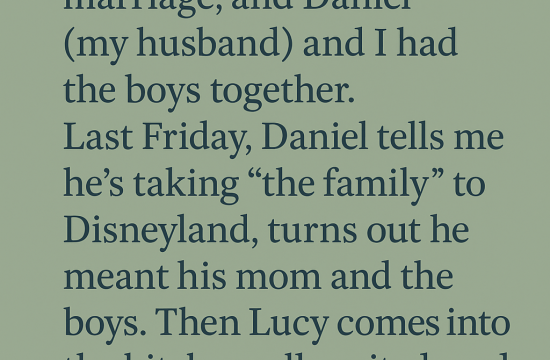Mark had been counting down the days to his long-awaited vacation. He’d booked his flights months in advance, reserved hotels, and meticulously planned every detail—a rare chance to unwind after years of nonstop work. Everything had been approved by his manager, and the trip was set in stone.
Then, a week before his break, his coworker Lisa approached him with a smile that didn’t quite reach her eyes. “Hey, Mark, I just realized my kids’ school break is during the same week you’re off. Any chance we could swap vacations? It would mean the world to them.”
Mark hesitated but stayed polite. “I’d love to help, but I’ve already booked everything. Most of it’s non-refundable.”
Her expression changed instantly. “Seriously? You can’t be flexible? I mean, it’s just you. It’s not like you have kids depending on you.”
That stung. “Lisa,” he replied evenly, “just because I don’t have kids doesn’t mean my time off is less valuable.”
She scoffed and muttered, “Must be nice to have so much freedom,” before walking away.
Mark thought that was the end of it. But over the next few days, Lisa went cold. She barely spoke to him, avoided eye contact, and made her displeasure obvious. He tried to brush it off—until his boss unexpectedly called him in.
“I’ve been hearing things,” his boss said. “Lisa’s in a tough spot. You could’ve been more understanding. Maybe be a little flexible next time?”
Mark stared, incredulous. “With all due respect, I planned this months ago. I’ve already spent thousands. Why should I lose that because someone else didn’t plan ahead?”
The boss shifted uncomfortably. “I’m not saying you’re wrong, but you know how these things look.”
Mark walked out of the meeting stunned. Somehow, he was the bad guy—for simply keeping the plans he’d earned and paid for. The mood at work stayed tense, whispers circulating, a few coworkers quietly taking sides.
Now he can’t help but wonder:
Was he truly selfish for saying no—or is there a double standard where parents’ needs always come first?











